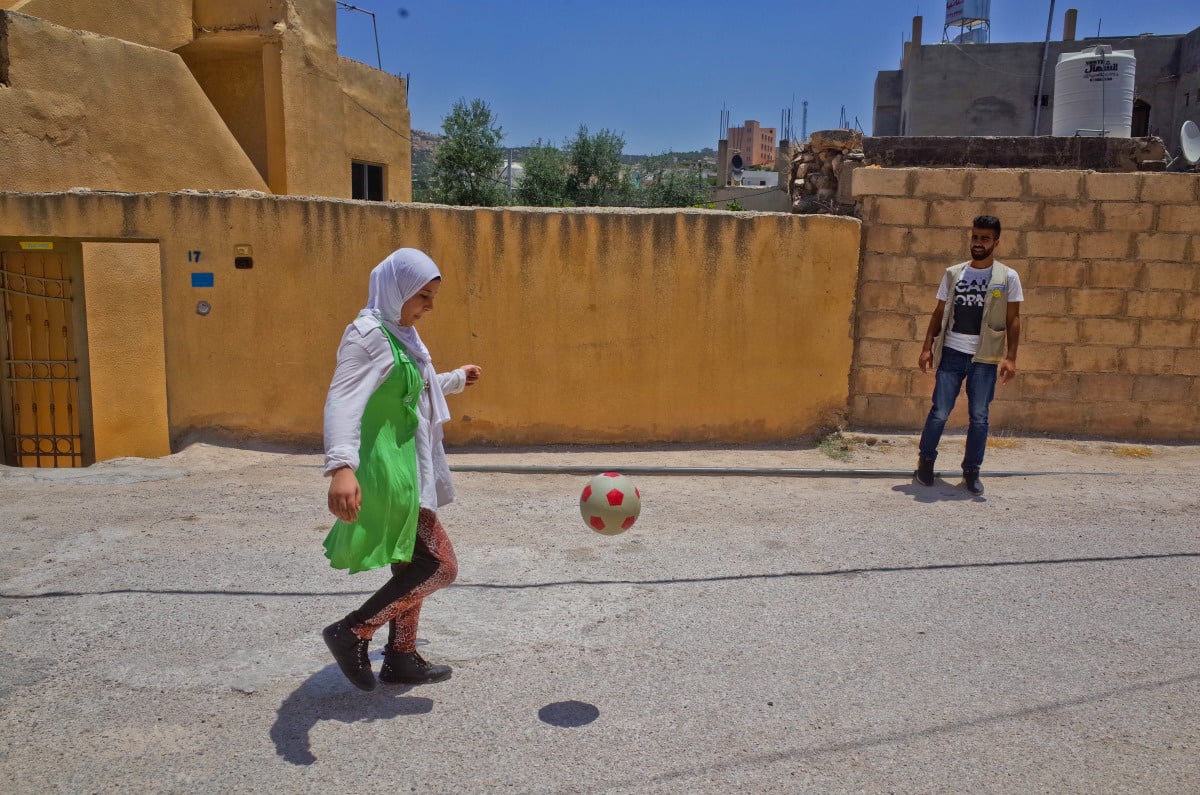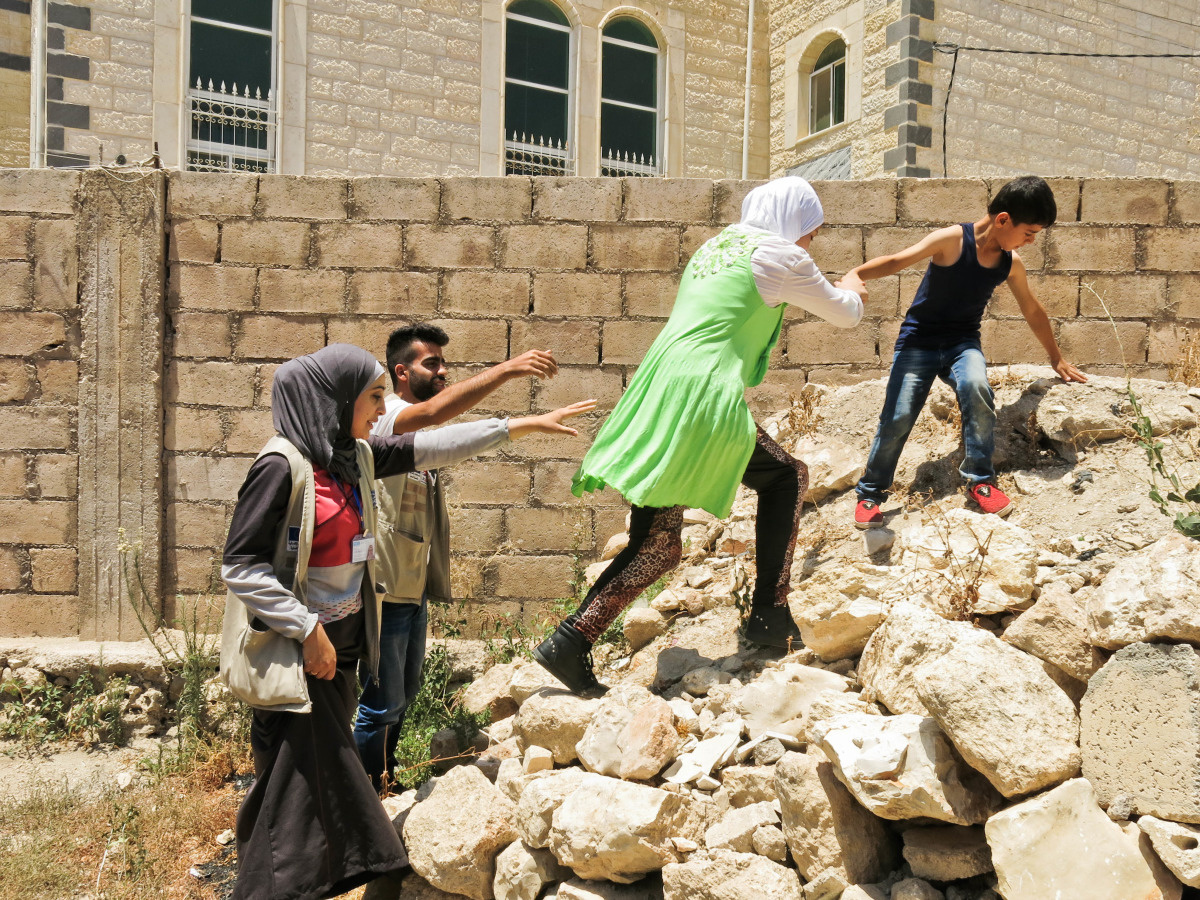Salam lives with ten other members of her family in a small two-room property located in a rural village, some twenty kilometers from the city of Irbid.
Although Handicap International’s teams provide assistance in Irbid’s hospital, the organization also arranges home visits for dozens of people like Salam who live too far away to benefit from its services. As a result, a mobile team composed of a physical therapist and social worker come to see her every week.
The bombs started falling with a deafening sound
As they start the session, Salam recalls the day her life changed forever. “My neighborhood came under intense aerial bombardment. I was walking in the street with Falak, my big sister, when the bombs started falling with a deafening sound. My sister and I tried to take shelter, but a bomb fell a few meters away from us. My older sister was hit in the head and didn’t survive. I got hit by shrapnel,” she continues as her mother looks on sadly.
Salam lost both her legs in the bombing. She was given an emergency amputation in Syria then sent to Jordan with her older brother to continue her treatment before being joined by the rest of her family.
Now 14, Salam is still growing fast and her artificial limb legs need to be changed every six months to adapt to her new size. Every time they visit, Handicap International’s team also makes sure the prostheses are in a good state of repair. The slightest fault can make them very uncomfortable and prevent Salam from doing her rehabilitation exercises.
Today, Salam’s weekly session includes weight-lifting to strengthen her muscles and walking on uneven ground to improve her balance, before ending with her favorite sport - football.

© G. Vandendalen / Handicap International
An incredibly strong character
“Salam didn’t wait to be fitted with artificial limb legs to walk. After her amputation and scars had healed, she began walking on her stumps!” says her mother.
Salam is a big football fan, and her favorite player is Lionel Messi. But she’s not content with simply watching the game: Salam loves playing football in the street with her brothers and sisters or with her neighbors. “When I play football, I’m their teammate, not a girl with two prostheses anymore,” explains Salam smiling.
Recently, Salam, who always seems to find a new challenge to meet, successfully climbed a pile of rubble near her family’s home.
Handicap International is also focusing on functional rehabilitation by working with Salam on small everyday movements and activities that are normal for a girl of her age. Salam is proud of the fact that she can help her mother in the kitchen, as she prepares meals, for example.
In the future, Salam’s greatest hope is to return to school.

© E. Fourt / Handicap International






